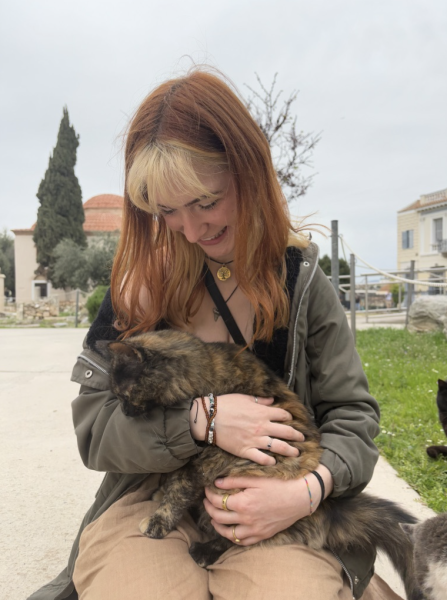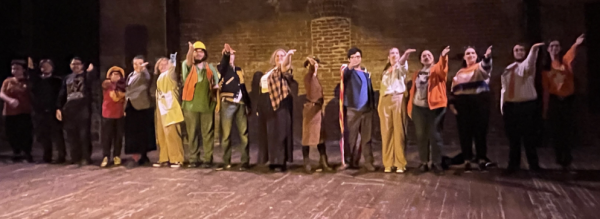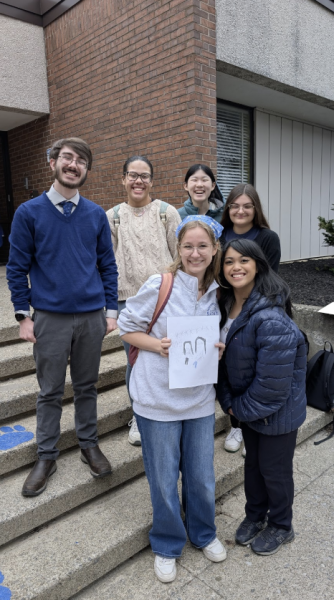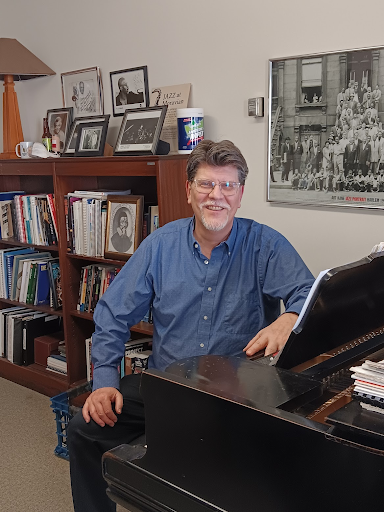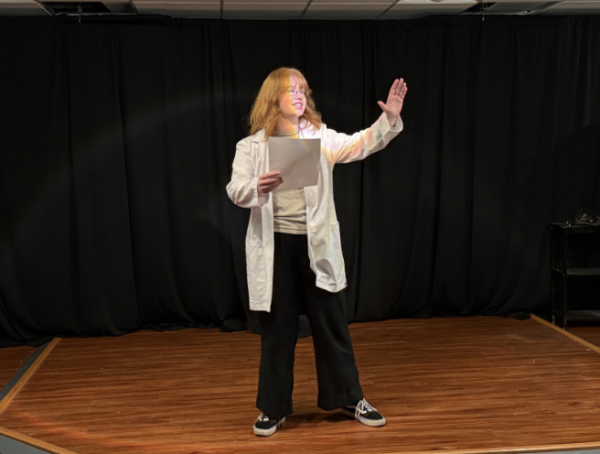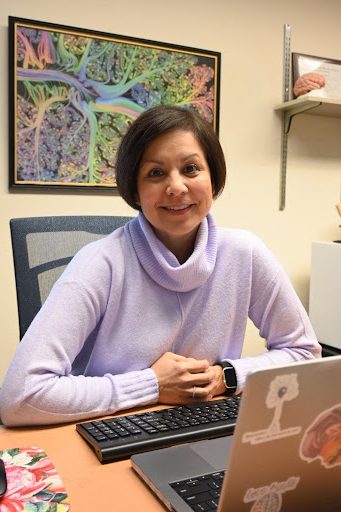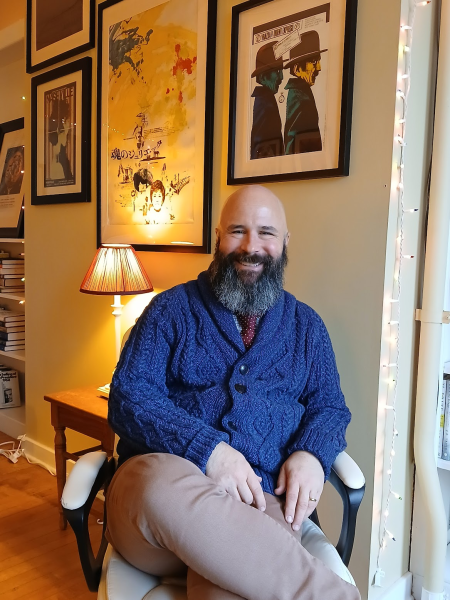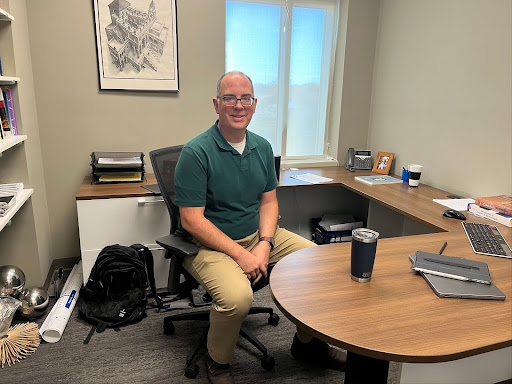Professor Spotlight: Carmen Ferrero
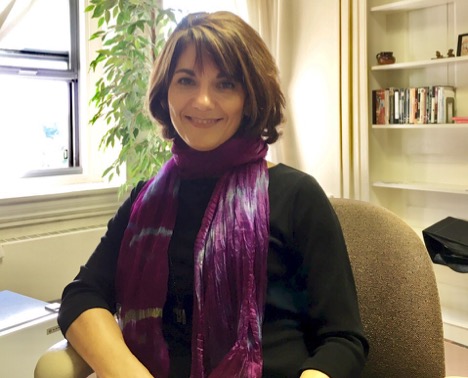
Dr. Carmen Ferrero is an associate professor of Spanish at Moravian College. She received her B.A. in Licenciatura en Filología at the University of Valladolid in Spain, her M.A. in teaching methodology at the University of Maine, and her Ph.D. in Spanish literature at Rutgers University.
What inspired you to go into your field of study?
I always enjoyed learning languages. In high school, I took Latin and Greek. Shortly after starting English, I studied abroad in England and understood philosopher Ludwig Wittgenstein’s quote, “The limits of your language are the limits of your world.” Language is much more than an instrument to communicate; our culture is embedded in it. Once you have had a taste of what it is like to travel, to learn about other cultures and people directly, you can’t really go back to a life without it. Think of your favorite food. You can read all there is about it, know its chemical composition, describe it literally or poetically, recognize it in photos or videos, hear reports of what it tastes like and smells like. Still, nothing compares to trying it yourself. Knowledge is useful, but I think what makes a difference in someone’s life is experience.
What research are you currently working on?
Mostly sociolinguistics. I’m studying the process of regional dialect leveling, that is, the loss of distinctiveness of linguistic features at the local level taking place in some regions of Spain. For decades, linguists have been debating whether the linguistic variety spoken in the region where I grew up in Spain is a dialect or simply Castilian Spanish with a different accent. There are very few studies written in English about this linguistic modality.
What do you think is the most recent important development in your field of study?
Technology is a big help in data gathering and analysis. Nowadays, you can record hundreds of speakers, gather the data you need, and analyze it in a very short time. Thanks to the new technologies, there are some interesting projects like dialectology going on that span large regions, countries, and even continents.
What job would you have if you couldn’t be a professor, regardless of salary and job outcome? Why?
Perhaps I’d be an anthropologist. Just a guess. It was my second choice when I had to decide on a major in college. I’d be digging out bones at the Atapuerca caves, near my hometown in Spain. They contain the fossil records of the earliest human beings in Europe, nearly one million years old. I’m still somehow indirectly connected to that field because I recently contacted one of the geologists working there and asked him to give us a tour of the site during our May Term in Spain. So, if all goes well, we’ll be jumping from a Medieval Gothic cathedral in the morning in Burgos to an archaeological site of the Pleistocene in the afternoon.
What do you know now that you wished you knew when you were in college?
That we tend to see things not as they are, but as we are.
What is your biggest student pet peeve?
Fake excuses for absences or not being prepared. It’s usually better to be straightforward with your professor.
What was the last show that you binge-watched or the last good book that you read?
I was recently in Geneva and went to see Jorge Luis Borges’ grave. The words on the stone [were] “And be not afraid” in old English, from “The Battle of Maldon,” which Borges translated, made me go back and binge-read some of Borges’ work again. Somehow, I always go back to classics for a truly good read.
What is something interesting about you that most of people don’t know?
I have rescued many dogs over the years, some really old ones that had no chance of being adopted and needed a place to spend their last year or two. Those were the most wonderful dogs I’ve had. At times, if you came to my house, you’d meet my two dogs, because I tend to adopt them in pairs, plus the one I was fostering and a fourth one, because I could be dog sitting for a friend. I don’t foster anymore because I travel quite a lot, so I just have two dogs now.
What would you consider to be your spirit animal and why?
I’m not sure about that. It’s not dogs, though. Perhaps birds. Flying must be a wonderful sensation. You see the whole picture in a way that’s not possible with your feet on the ground, and you can go really long distances.
Why did you decide to move to the United States and teach at universities here?
After my first experiences abroad, I wanted to continue to travel, so, when I finished college, I came to the US to attend graduate school. I knew I wanted to be a language and literature professor, and I loved the idea of teaching at a small liberal arts institution. I felt it is the best place to educate in the true meaning of the words, “ex ducere,” to bring out the best in someone, to set a path.
One of my advisors used to say that to educate is not to format people, like a computer disk, or fill their heads with facts that can be tested. Information is necessary, but not enough. She often told us, “The days you think you don’t get much out of my class because of me are not a waste; you are learning a most valuable thing: how not to be if you want to inspire others.” I may have forgotten most of the stuff she taught me, but I remember that. As someone said, it’s not about what we cover in class, but what students discover while being in it.



